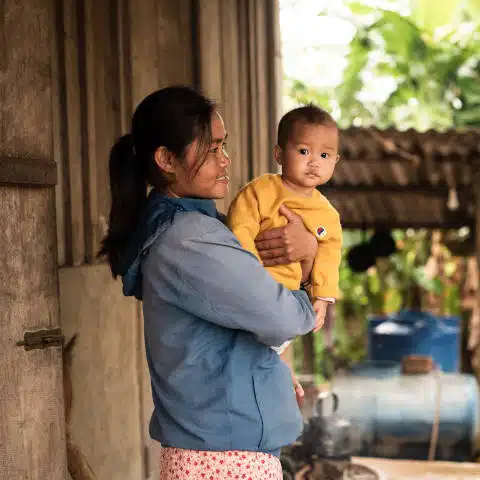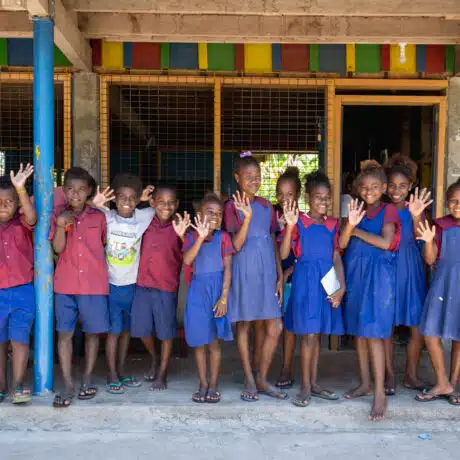News and Stories - Climate Change - 20 February 2019
This time, they were ready

Climate change is already a reality for many. And while it must be a global priority to stop it in its tracks, those who are facing it now – like mother and daughter Vai and Sen from Vietnam – are learning how to stop it devastating their lives.
It’s 1992, and Vai is seven years old living in the rural Quang Binh province in Vietnam. She’s playing outside with her young cousins, when it begins to thunder.
Vai has seen storms before, but not like this. The rain looks like a wall of water. She can’t see her hands in front of her. She hears the pigs and chickens her family relies on for food squeal and squawk, and then stop. In no time the water is up to her waist.
Vai has never heard the word flood, and she has no idea what to do. Her family received no warning. There is no evacuation plan. She is totally unprepared, and terrified.
Vai and her cousins managed to climb onto their roof and, clinging to coconut trees, make their way to a hill, where they hid for two days with no food. But they shouldn’t have had to.
Now, Vai is 36-years-old and mother to four children. In her short lifetime she has seen disasters worsen because of climate change.
Roads now become raging rivers when it rains. Floods are more frequent and unpredictable.
Climate change is big. And it’s scary. 73 per cent of Australians are concerned about climate change. It feels like it has run away from us, too big for individuals to conquer.
But we can’t be scared into inaction. There are real, tangible things we can do to make a difference. And Vai’s youngest daughter Sen is proof of that.
Sen is nine years old. Growing up, her mother would have to carry her on her back to cross flooded paths that they would have been able to walk on the day before.
When the floods came, Sen would cry at the sight of them. She didn’t understand why they happened or what to do.
That was until Sen took part in training with Plan International at school that taught her about floods, what they were, what was causing them and what she could do when they came.
In 2017 Vietnam was struck with the worst flood they had seen in a decade. The wind tore the roof from Vai’s home. The family lost their livestock, the chickens and pigs they depended on for food. But this time, they knew what to do.
They were warned ahead of time through the early warning system at the school. Vai and her family evacuated to a local preschool. They were safe.
Sen is no longer afraid of floods. She knows what to do when they strike. And while climate change is big and worrying, she is setting an example for us, that we can’t let our fear stop us from acting.
Young people all over the word – and girls in particular – are taking action because it is the most marginalised who will be disproportionally impacted by climate change. Girls who are separated from their families when disaster strikes are at risk of kidnapping, violence and trafficking. In the aftermath of a disaster they are often the first taken out of school. Young people know their future hangs in the balance.
There are many ways we can back them. By taking small but important steps in our homes, by demanding action for our leaders, and by supporting children like Sen with practical solutions so that when disaster strikes, they’re ready.
Let’s support kids so they don’t have to fear the future.
Find out how you can support children like Sen.
Our Safe Schools project in Vietnam is supported by the Australian Government through the Australian NGO Cooperation Program (ANCP) and complemented with funds generously donated to Plan International Australia from the Australian public.
![]()



